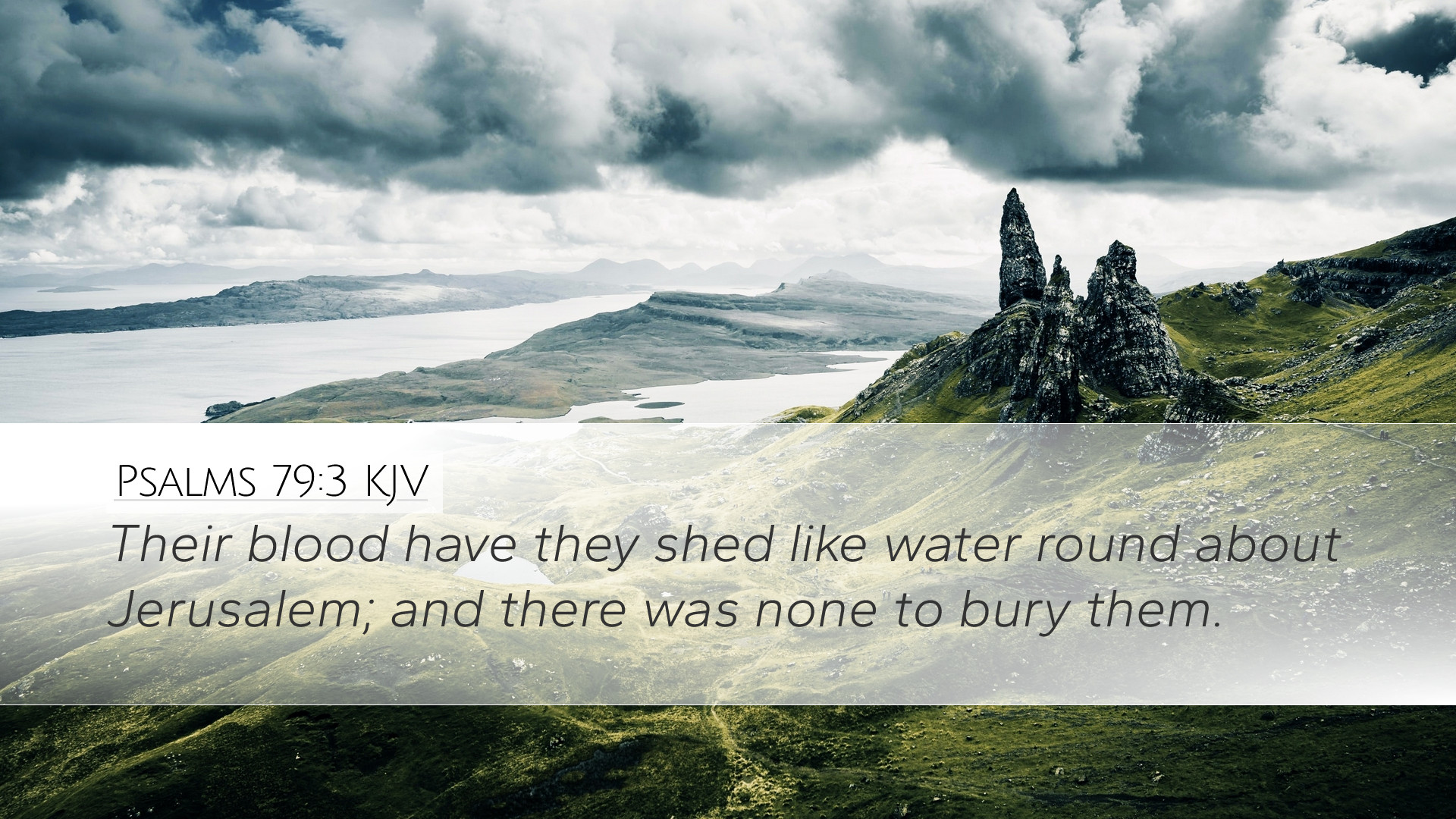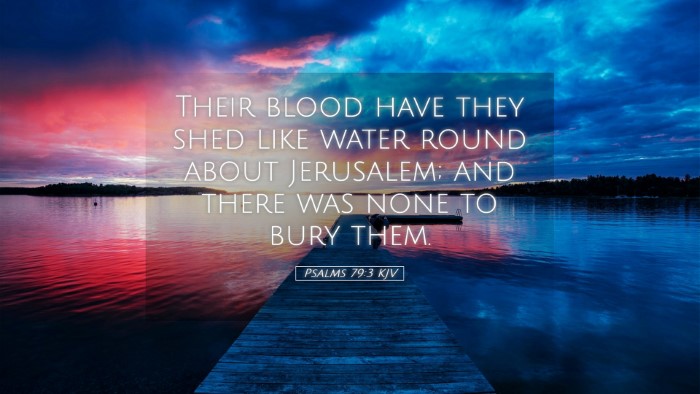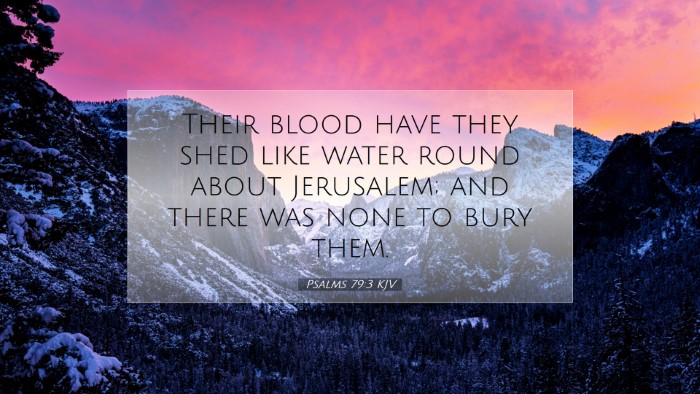Psalms 79:3 - Commentary Summary
Verse: "They have poured out their blood like water round about Jerusalem; and there was none to bury them."
Introduction
Psalms 79 is a corporate lament that addresses the destruction of Jerusalem and the suffering of God's people. This particular verse (Psalm 79:3) captures the tragedy of warfare, the dehumanization brought about by conflict, and the seemingly forgotten plight of the innocent. Commentaries from respected theologians like Matthew Henry, Albert Barnes, and Adam Clarke illuminate the depth of grief and the historic context surrounding this passage.
Contextual Background
The historical backdrop of Psalms 79 is often associated with the Babylonian exile and the destruction of the first temple. As the nation of Israel faced devastation, the psalmist vividly portrays the bloody aftermath of warfare. The lament reflects both personal sorrow and national anguish, embodying a plea for divine intervention and restoration.
The Nature of the Grief
-
Bloodshed: The metaphor of blood being poured out like water evokes a strong image of loss and violence. Henry notes that this symbolizes the extensive loss of life and the utter disregard for human dignity amidst war.
-
Absence of Burial: The phrase “and there was none to bury them” speaks to the humiliation and desecration of the dead. Barnes emphasizes that this was a significant dishonor in ancient cultures, reflecting the depth of despair faced by the survivors.
Theological Implications
The lament communicates profound theological truths about God's justice and mercy. Clarke suggests that the psalmist's plea highlights the covenant relationship between God and Israel, where the suffering of His people raises questions about divine fidelity amidst adversity.
-
Human Suffering: This verse underlines the reality of human suffering in a fallen world. It serves as a reminder of the pain and trials believers may endure and the need for God's intervention.
-
The Hope for Restoration: Despite the grim circumstances depicted, the psalmist's lament is implicitly hopeful, asserting a desire for God's restoration and the eventual vindication of His people.
Call for Divine Intervention
The cry of despair in Psalm 79:3 transitions toward an appeal for God's mercy and intervention. As noted by Barnes, the psalmist not only laments the present condition but also anticipates a divine response, which is crucial for understanding the psalm’s purpose.
The wider context of the psalm reflects a juxtaposition of despair and hope, where the plea for help is anchored in the assurance of God’s covenant promises. Henry observes that this tension is essential for spiritual growth, as lament and hope often coexist within the believer's experience.
Application for Today’s Believers
The insights from Psalms 79:3 are significant for contemporary believers. The imagery of bloodshed and neglect serves as a stark reminder of the ongoing struggles seen in our world. It invites pastors, theologians, and students to confront the realities of suffering with honesty.
-
Empathy and Action: Believers are called to develop empathy towards the suffering and marginalized in society. The neglect illustrated in this verse can challenge us to be advocates for justice and mercy.
-
Communal Reflection: This psalm encourages community lament, fostering an environment where grief is shared and understood within the faith community.
-
Expectation of God’s Response: While lamenting, believers are encouraged to maintain a hopeful expectation of God's intervention, trusting in His plans for restoration both personally and communally.
Conclusion
Psalms 79:3 serves as a poignant reminder of the tragic consequences of sin and conflict. Through the lenses of various commentators, we see a rich tapestry of grief interwoven with hope, prompting reflection and action in our own lives. As we engage with the text, may we seek to be agents of God’s peace and restoration in a world that mirrors the anguish of the psalmist's cry.


